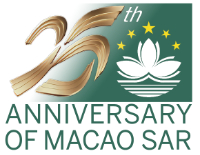Editor's note: Over the past 25 years, the Macao Special Administrative Region has registered remarkable economic development and the practice of "one country, two systems" has achieved great success widely recognized by the world, showcasing great vitality and unique charm. Three experts share their views on the issue with China Daily.

Over the past few weeks I have been asked to summarize my assessment of the first 25 years of the existence of the Macao Special Administrative Region, and my standard answer has been "beyond all expectations".
And that's as someone who visited Macao for the first time in 1980, when it was still under Portuguese rule, covered the historic ceremony of Dec 19 to 20, 1999, marking China's resumption of exercising its sovereignty over the territory, and will cover this week's 25th anniversary celebrations of the establishment of the Macao SAR and inspection tour by President Xi Jinping.
READ MORE: Chinese leader commends Macao's achievements
 First of all, no one predicted in late 1999 that Macao's gross domestic product would grow phenomenally and its per capita GDP would figure among the highest in the world within just a few decades. According to official figures, Macao's GDP soared from 51.9 billion Macao patacas (MOP) in 1999 to 379.5 billion MOP in 2023(approximately $47 billion, based on the 2023 average exchange rate).
First of all, no one predicted in late 1999 that Macao's gross domestic product would grow phenomenally and its per capita GDP would figure among the highest in the world within just a few decades. According to official figures, Macao's GDP soared from 51.9 billion Macao patacas (MOP) in 1999 to 379.5 billion MOP in 2023(approximately $47 billion, based on the 2023 average exchange rate).
Some international consultancies and media outlets have forecast that Macao's per capita GDP is set to reach the top of the per capita GDP world ranking in no time, or even that it may already have reached it, competing with Luxembourg and Singapore for the number-one position. As a realist, I prefer to wait for the IMF to confirm it. Anyhow, making it to the top five in just a quarter of a century is worth accolades.
But, of course, it's not just Macao's economy that has produced extraordinary results. The SAR has also made considerable progress on the social welfare, public administration, public housing, education and public health fronts, alongside an overall modernization and, last but not least, digitalization drive — virtually every resident's Macao One Account has made life much more convenient, and convenience is something that locals appreciate more than everything else, apart from public security and political stability.
Public security has been a fait accompli since Macao's return to the motherland. I guess that the sheer presence of a People's Liberation Army garrison here has scared the socks off the gangsters.
Macao was affected by gangland violence in the 1990s that threatened its image as a safe tourist destination. However, it's important to point out that Macao's crime wave did not affect the city's political transition that formally began after the signing of the China-Portugal Joint Declaration on the Question of Macao in Beijing in April 1987 and gathered speed with the promulgation of the Basic Law of the Macao SAR in March 1993. Compared with Hong Kong, Macao's transfer from Portuguese to Chinese rule was markedly smooth.
Contrary to what I have been reading in the media over the past few decades, on Dec 19 to 20, 1999, Portugal did not "hand over" its sovereignty over Macao to China; instead the latter "resumed the exercise of sovereignty over Macao" in order to establish the MSAR and in line with the Joint Declaration.
Without "one country, two systems", which also applies to Hong Kong and, let's hope, to Taiwan in the not-too-distant future, Macao's politico-economic success over the past 25 years would, most probably, can never have been achieved. "One country, two systems" was a political masterstroke initiated in the early 1980s by then Chinese leader Deng Xiaoping, who, regrettably, was unable to witness Hong Kong's return on July 1, 1997, as he passed away on Feb 19, 1997. I was covering the visit of Portugal's then president Jorge Sampaio, to Macao. I remember that he was visibly shaken by the sad news.
While the Dec 19 to 20, 1999, events "only" happened a quarter of a century ago, I do feel that they happened a "very long time" ago. I think the point is that since then so many things have happened here, mostly for the better, such as its phenomenal economic growth, modernization drive, administrative reforms, the setting-up of Forum Macao as a platform for economic, commercial and even cultural relations between China and Portuguese-speaking countries that has brought together 10 countries with a combined population of over 1.6 billion people, the setting-up of the Guangdong-Hong Kong-Macao Greater Bay Area and the establishment of the Guangdong-Macao In-depth Cooperation Zone in Hengqin, as well as the government's "talent acquisition" import scheme. Macao's ongoing incorporation into the GBA, including the cooperation zone in Hengqin, entails both opportunities and challenges for Macao that, in my view, need time to be "digested" by the local residents.
In any case, Macao's return to the motherland happened at the end of the last century when it was high time Westerners ruling territories in what then known as the Third World drew to a close. Incidentally, the United States returned control of the Panama Canal to Panama on Dec 31, 1999.Incredibly, there are still quite a number of territories in what is now known as the Global South that continue to be ruled by Western countries.
ALSO READ: SAR’s 25th anniversary: A story of success
And then there was the three-year impact of the COVID-19 pandemic on Macao, which affected all of us. The three years weren't a walk in the park but, in all fairness, outgoing Chief Executive Ho Iat-seng and his team deserve praise for having been able to keep the nasty virus largely at bay, also because of the close cooperation between local and central government officials.
Macao has enjoyed 25 years of progress, patriotism and prosperity thanks largely to the strong support from the central authorities, not only in Beijing but also their representatives in Macao — the Liaison Office and Foreign Ministry Commission.
President Xi Jinping paid inspection visits to the SAR in 2014 and 2019, and is conducting his third such visit from Wednesday to Friday. During his stay he will swear in the next government under Chief Executive Sam Houfai, who in the past few weeks has repeatedly reaffirmed the significance of the "one country, two systems "principle, national security and people-focused policies.
The author is director of Macau Post Daily.
The views don't necessarily represent those of China Daily.


